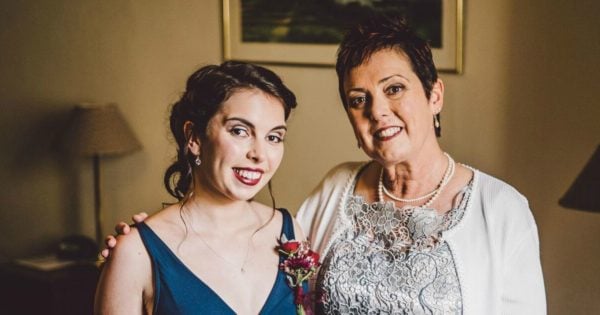Imagine your mouth taped up, except for a tiny portion on the side; speaking is impossible, breathing is a challenge.
Then imagine your tongue is partially numbed, so you can’t flick food around to swallow. Imagine your fingers are taped together so you can’t use your hands. Imagine you have a 10kg weight strapped to your forehead, so you can barely lift you head.
“Tell me how that feels, and how long you can keep going?”
That’s the question Anne Gabrielides wants New South Wales MPs to ask themselves as they consider whether to pass the Voluntary Assisted Dying Bill due to be introduced to parliament in August.
Using an iPad to speak for her, the 55-year-old mother of three last week appeared at a press conference to announce the draft bill, and offered the rest the world that heartbreaking glimpse into hers. A world in which Motor Neurone Disease has robbed her of the ability to speak, to use her hands, to sleep properly.
Over the coming months, her neurones (nerve cells) will continue to die, more of her muscles will waste and, ultimately, MND will claim her life. But with what time and strength she has left, Anne is fighting for the right to “deny this disease its last victory”, to choose her own ending, and ensure others in a similar situation can do the same.
So far, she’s managed more than 71,000 signatures on her Change.org petition, and it’s still climbing.


